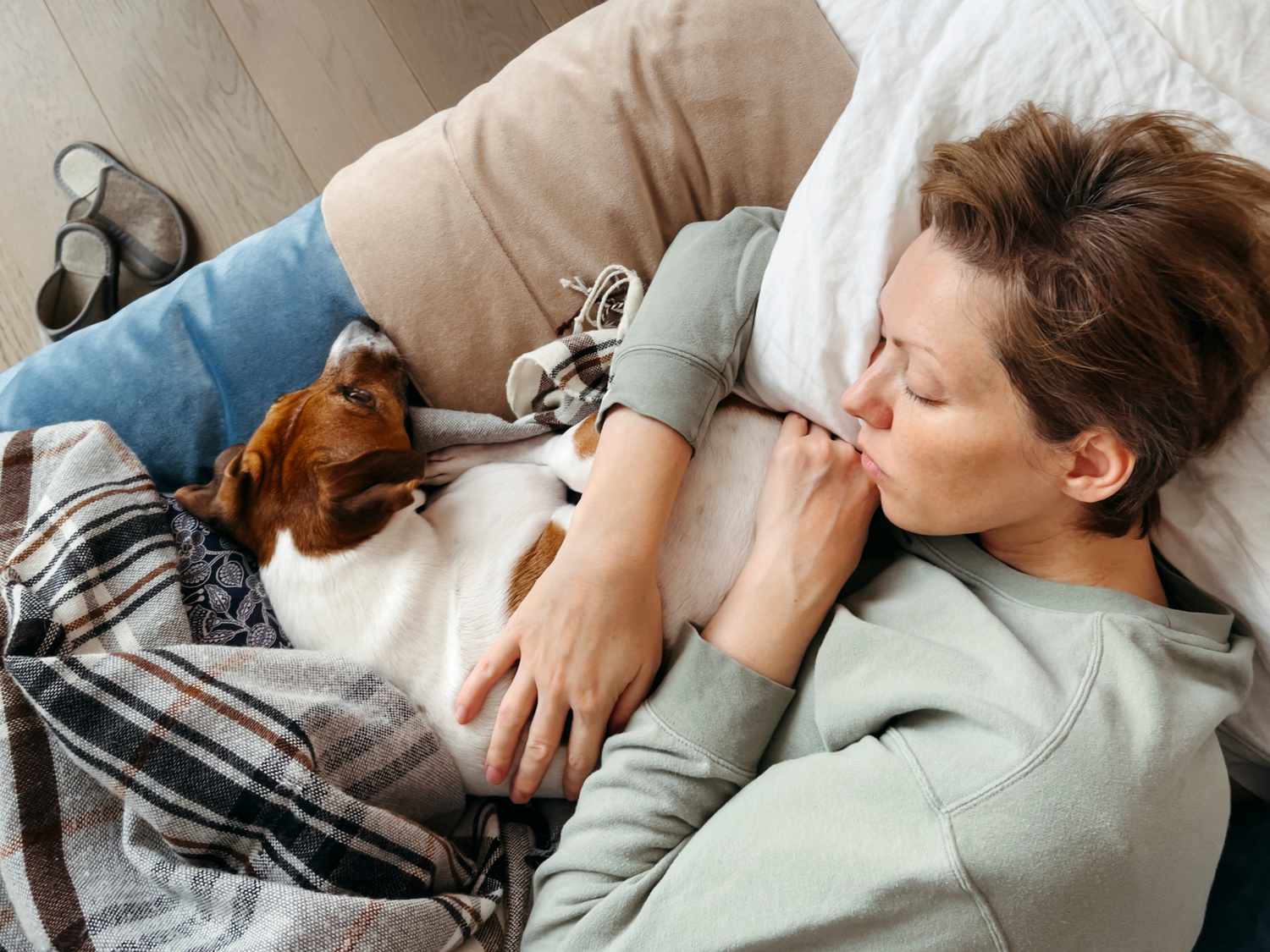Experts Weigh in on Whether or Not Pets Should Sleep in Bed With You

Pets are commonly considered an integral element of many households. However, the implications for one's health when sharing a bed with a beloved pet often pose a question.
Studies suggest that a significant proportion of pet-owners allow their furry companions to sleep on their bed. A 2015 survey indicated that 56% of the pet-owning respondents allowed this, whilst a 2022 study showed this number as 46%.
According to Jamie Whittenburg, DVM, veterinarian director at Senior Tail Waggers and director of Kingsgate Animal Hospital, there are various factors to consider when deciding whether to allow a pet to share a bed, including potential health risks as well as benefits. It all depends on the specific circumstances such as the pet's behavior and owner's health conditions.
Whittenburg points out potential issues such as the spread of parasites, but also notes possible benefits like enhanced bonding and mental health improvements for both pet and owner.
Ultimately, the decision relies on personal discretion and individual circumstances, she elaborates. Every pet owner should consider the specific scenario and make the decision that's best for them and their pet.
Insight into the potential risk of co-sleeping with pets is provided by various allergists and veterinarians.
Despite the affection we have for our pets, sharing a bed with them may not always be the most health-conscious choice, says Purvi Parikh, MD, clinical assistant professor and allergy and infectious disease specialist at NYU Langone Health. This is particularly true for those with pre-existing health conditions.
Pet allergies are prevalent in the U.S., often causing itchy eyes, sneezing, or hives in people who co-sleep with their pets, reveals Parikh.
Increased allergy and asthma symptoms may occur due to continual exposure to pet dander and hair throughout the night.
Even non-allergic individuals may experience these problems when co-sleeping with pets, due to exposure to other allergens like dust mites, pollen, and mold present in the pet's fur, states Michelle Yasharpour, MD, an allergy, immunology, and asthma specialist.
Co-sleeping with pets can also lead to exposure to parasites such as fleas, ticks, or even worms, according to Whittenburg. Additionally, pets potentially carry zoonotic diseases which can be picked up from infected animals or contaminated environments. These pose a more significant risk to those who are immunocompromised.
Whittenburg clarifies that the risk of exposure is higher in pets that have access to the outdoors compared to indoor pets.
Dr. Tanya Laidlaw, MD, director of translational research in the division of allergy and clinical immunology at Brigham and Women’s Hospital, adds that pets regularly treated by a vet have a notably lower chance of transmitting parasites to humans.
Another issue may arise if a pet's actions, such as moving or scratching, disrupt the owner's sleep, states Whittenburg. Despite this, research indicates that many pet owners report sleep disturbances due to their pets.
Nevertheless, positive implications of sharing a bed with a pet may include enhanced mental wellbeing, self-esteem, and reduced depression and anxiety, according to Whittenburg and Parikh.
Whittenburg elaborates that many pet owners derive comfort from allowing their pets to sleep near them at night, which can reduce their anxiety and provide a sense of security.
Because having a pet in the bed can increase this sense of safety or comfort, some research has suggested that pets may even have a positive or simply neutral effect on sleep quality.
For dogs in particular, a small 2017 study found that when dogs sleep in certain positions on the bed, they don’t seem to have a negative effect on their owners’ sleep.
If you are unsure whether you’ll be willing to continue allowing your pet to sleep in the bed, it is better to never start, Whittenburg recommended.
However, if co-sleeping with your furry friend has become a habit, there are things you can do to reduce health risks and boost sleep quality for everyone.
If allergy symptoms are a concern, people can reduce the accumulation of dander or other allergens by frequently washing their sheets, using a HEPA air purifier, and bathing their pet often. Pet owners can also consider taking over-the-counter antihistamines or trying allergy shots or immunotherapy to decrease the effect of allergy symptoms.
Diseases and parasites are a bit more challenging to control, however, people should keep their pets up-to-date on vaccinations and vet visits to make sure they're protected from any potential infections.
And if you’re still unsure of what to do or need help managing any co-sleeping issues, contact your veterinarian, who can provide insight and help you make an informed choice.




